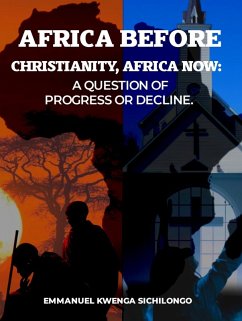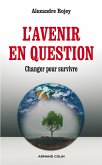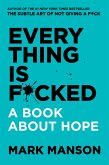Writing this book has been no small feat; indeed, it has been a bold and personal journey. I am well aware that in addressing some of the deeply ingrained beliefs held by many about the causes of Africa's underdevelopment, I am taking a step that might not be popular with everyone. Some may strongly disagree with my perspective, but that does not make the arguments presented here any less valid. My goal is not to win the approval of the masses, but to ignite thought, provoke a re-evaluation of assumptions, and encourage an honest dialogue about the complex realities Africa faces. One of the most persistent myths that has shaped the narrative of Africa's struggles is the belief that Christianity; along with colonialism; has been a key factor in the continent's underdevelopment. However, as I explore in this book, I firmly believe that this view is not only oversimplified but also misrepresents the true sources of Africa's challenges. I stand by the argument that Christianity, when correctly applied, has in factplayed a positive role in Africa's progress, contributing to the abolition of inhuman practices, the promotion of education, and the cultivation of values that encourage hard work and ethical governance. Similarly, while colonialism undeniably left its mark on Africa, I argue that it should not be solely blamed for Africa's current state. In truth, the roots of Africa's underdevelopment lie within Africa itself. Until we stop searching for an external scapegoat and start focusing on ourselves, we will continue to stagnate. No one is responsible for Africa's greatness but Africans themselves. Our future will not be shaped by the narratives we choose to accept about the past, but by the decisions we make today and the actions we take to change our own trajectory. This book is an invitation to rethink long-held assumptions, to challenge narratives that have been repeated so often they've become accepted truths. It calls for self-reflection, ownership, and responsibility. The answer to Africa's problems does not lie in blaming others; whether it be foreign powers, missionaries, or external influences; but in confronting the internal issues that hold us back. African leaders, too often motivated by self-interest, must stop viewing political positions as jackpots for personal wealth and start seeing them as opportunities to serve the people and build sustainable futures for all. As long as we continue to look outward for the causes of our failures, we remain stuck in a cycle of dependency and frustration. The real power to transform Africa lies within us, in our capacity to take responsibility for our own progress. I hope this book challenges you, the reader, to look beyond the conventional narratives, to question the assumptions that have guided our thinking, and to embrace the power of self-determination in Africa's journey toward true development. This is not just a critique; it is a call to action. Let us take control of our destinies, free from the chains of misplaced blame and misguided dependency. We must reclaim our agency, and in doing so, we can make Africa the great continent it has always had the potential to be.
Dieser Download kann aus rechtlichen Gründen nur mit Rechnungsadresse in A, B, CY, CZ, D, DK, EW, E, FIN, F, GR, H, IRL, I, LT, L, LR, M, NL, PL, P, R, S, SLO, SK ausgeliefert werden.









